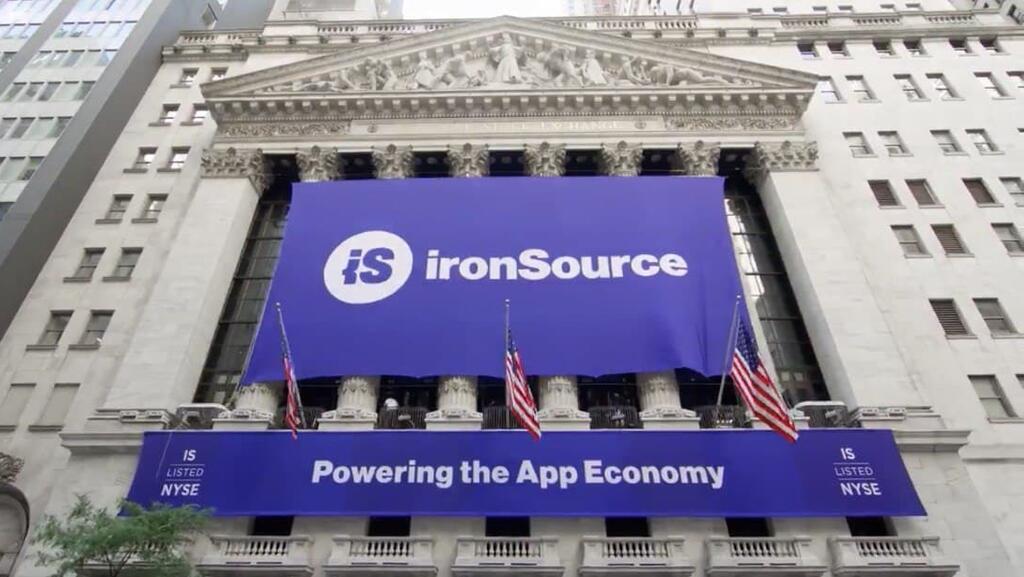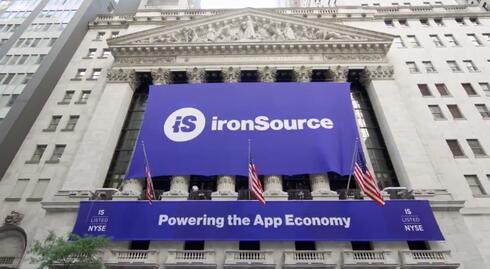
Unicorn troubles: How to convince tech talent to stay
While IPOs or lofty valuations may seem like a reason to party, they’re also a turning point as some employees are realizing their options’ value may decrease, and prefer to work elsewhere
Maayan Manela | 15:00, 30.01.22
After the festivities subside and the euphoria dissipates, successful tech companies, unicorns, and newly public companies, are facing a new problem: departing talent. Over the past two years, Israel has become a unicorn superpower: private companies with valuations of over $1 billion are popping up like mushrooms after a winter rain. Over the past year alone, 17 Israeli startups lost their status as unicorns, from ironSource to monday.com and Cellebrite, who became public companies traded at valuations of over $1 billion. And while completing an initial public offering (IPO) or raising funds at a lofty evaluation may seem like a reason to party, they’re also proving to be a turning point after which companies are seeing some employees depart.
After a company either becomes a unicorn or goes public, employees realize that the rise in the value of their options will decrease. That’s why some talent chooses to search for job opportunities elsewhere, mainly at smaller startups with greater potential, leaving companies to cope with a wave of departures and begin to rethink employee retention. On the other hand, recruiters at startups admit that once they announce their intent to gear toward an IPO, some employees won’t rush to leave even if they were already considering doing so prior to the announcement. This phenomenon leaves unicorns with employees who have one foot out the door.
The startup dream has come true. What next? “Employees who choose to depart after an IPO announcement has always been a familiar phenomenon. It stems from several reasons, not just financial ones. The top two are that companies receive very high valuations from the early funding stages, and certainly in the IPO. That valuation doesn’t always remain so high after the IPO. Most employees’ stock options are already mature, and they don’t always have the patience to wait around until the stock stabilizes or rises, they prefer to actualize their equity and then go looking for their next big opportunity,” said Merav Shoval-Hinkis, Head of People at Pitango. She also believes this behavior is typical of a certain “type” of person. Many startups are rapidly becoming unicorns, and people who joined the now-gone-public company are of a certain personality type that makes them want to re-experience that feeling of striking it big, enjoy working at a startup, and will therefore resign and instead head off to other smaller startups. Oshrat Binyamin, VP of HR at monday.com, which went public in June on the Nasdaq at a whopping $6.8 billion valuation, said that the main challenge today is employee retention and mobility between companies. “After an IPO, employees might have already earned their bonuses, and the ability to retain them - at least in the monetary aspect - loses its value.” She believes the proper way to cope with this issue is to build an attractive incentive program, while also ensuring that employees feel that they still have a say and can provide value even once the company has already gone public. “We haven’t seen a fundamental change in employee departure after IPOs, and those who left reached a point where working here either didn’t suit us or them anymore. Since we went public during a year in which there is fierce competition over talent with many companies recruiting, it’s hard to say how much the actual IPO posed a challenge in terms of recruitment,” she said. “Those who are looking to fulfill their dream of working at a small startup won’t necessarily want to work at monday.com, and we’ll need to work harder to display the opportunity we offer here. We’ve created a model of smaller startups within the company that can operate independently within the larger monday.com, and that can be a good fit for those who dream of working somewhere small.” IPOs have more advantages for employees with exercisable stock options in the market at the end of a vesting period compared to options offered by a private company that remain ‘on paper only’, noted Ella Shechtman, VP of Human Resources at Nayax, a fintech company that completed the largest share issue ever on the Tel Aviv Stock Exchange in the spring of 2021 at a nearly $1 billion valuation. Nayax is working on a broader remuneration strategy that will include annual bonuses in accordance with the company and personal performance in addition to salary and stock options. “We’re constantly examining the issue of capital compensation to make sure that we’re in the right place compared to what is acceptable in the market these days. In the future, we may transition to compensation through blocked shares instead of equity, at least for some employees,” she says. Fireblocks, which raised $550 million at an $8 billion valuation last week, is working on emphasizing the partnership between employees and the workplace and bolstering the connection between the company’s and employees’ professional, economic, and personal development. “As a mega-unicorn, we offer employees various options with significant profitable potential, which grows as our value increases, as well as sales options for secondary shares. Our employees earn double: due to our constant increase in value, while also through dispossession, which is similar to earnings gained from a public company,” said Michael Shaulov, co-founder and CEO of Fireblocks. Employees waiting to earn an extra buck The reason why high tech companies offer options is to encourage employees to help the company succeed and enable them to benefit from the company’s achievements. It’s a tool geared for employee retention, and can also be a particularly effective one that motivates employees to work for a startup. According to a survey conducted by EquityBee, stock option packages inspire a sense of belonging among startup employees (70%), and cause them to work harder so that the company will succeed (47%). “Employees understand that equity options are an inseparable part of their incentive package, and 54% of startup employees believe that they can change their financial future,” said Guy Elbaz, General Manager at EquityBee-Israel. “That’s why startups can use those incentive packages to harness employees to create a shared interest between employees and employer, and encourage them to work hard and contribute to the company’s accelerated success.” In the world of unicorns, where companies are competing over limited talent in the market, stock options and their inherent financial potential have become crucial for employees who are considering transferring to a different company. “In the current situation, companies are competing over talent while there’s a shortage in manpower - mainly for quality technical positions - so the issue of options often arises in discussions with candidates on both sides of the aisle. Some candidates want to leave their current companies due to dissatisfaction, but aren’t willing to lose the inherent economic potential of their equity that they’ve accumulated over the years. On the other hand, recruiting companies also possess an advantage and can use equity as a persuasion tool to attract experienced employees to work at a growing startup that is undergoing development stages either in the business or product aspect,” said Amalia Landau, who serves as VP of HR at insurtech startup Five Sigma. “The greatest challenge is to recruit employees who aren’t in a hurry to go anywhere after the company goes public, but those are typically the most sought-after employees in the market - the talent that everyone is after.”